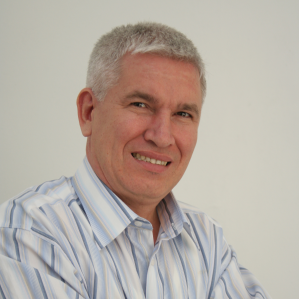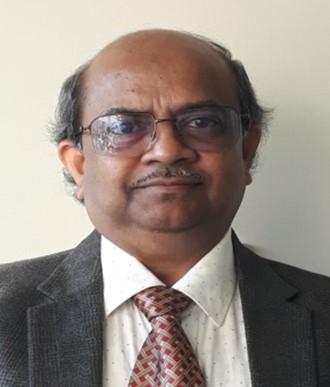Plenary Speaker
Prof. Habibullin Ismagil
Head of Department of Mathematical Physics, Institute of Mathematics with Computing Centre - Subdivision of the Ufa Federal Research Centre of the Russian Academy of Sciences, RussiaSpeech Title: On a Method of Classification of Integrable Lattices in 3D via Characteristic Lie-Rinehart Algebras
Abstract: The report discusses a new method for classifying integrable nonlinear differential-difference equations with three independent variables. Integrable equations have a wide range of applications in mathematical physics, so the problem of describing integrable equations is in demand. In our recent papers, we have developed an efficient approach to the problem of classifying integrable nonlinear equations with three independent variables, at least one of which is discrete. The idea of the method is based on the observation that by appropriately terminating a given integrable equation, one can reduce it to a system of hyperbolic type equations in two independent variables, which is Darboux integrable. A system of equations with two independent variables of hyperbolic type is called Darboux integrable if it admits a complete set of independent integrals in each of the characteristic directions. In turn, systems that allow a complete set of integrals have finite-dimensional characteristic Lie-Rinehart algebras. We use this fact as a classification criterion.
Biography: Education
1972-1977 Bashkir State University, Department of Mathematics. Diploma, speciality “Mathematics and teaching of Mathematics”. Master’s degree.
1977-1980 Bashkir State University (post-graduate course) Supervisor Prof. Alexey Shabat.
1982 Ph.D. in Differential Equations and Mathematical Physics.
1996 The second Doctor dissertation.
Research Interests
Methods for solving nonlinear differential and discrete equations of mathe-matical physics. Symmetries and their applications in integrability theory. Integrability criteria for non-linear partial differential equations and their discrete analogs, classification algorithms for integrable models.
Research Experience
To this moment I have more than 100 articles published in Russian and foreign world-famed scientific journals. In my articles the following problems are studied:
The stable recurrent algorithm for solvng the Riemann-Hilbert problem of analytical conjugation of functions is suggested. Based on this algorithm a numerical realization of the direct and inverse scattering transform method for NLS type equations is developed (in collaboration with A.G. Shagalov).
The phenomenon of boundary condition for soliton equations preserving the integrability property by using symmetries is investigated in collaboration with M. Gurses, V.E. Adler, S.I. Svinolupov and others.
The notion of the characteristic operators introduced for the case of PDE by A.B. Shabat is adopted to the discrete models and applied to the problem of the classification of semidiscrete models integrable in sense of Darboux (in collaboration with N. Zheltukhina, A. Pekcan).
The notion of generalized invariant manifold for nonlinear PDE and their discrete analogs was introduced. It was observed that such manifolds provide a very effective tool for constructing Lax pairs and recursion operators, as well as for searching particular solutions to nonlinear integrable models (in
collaboration with M.N. Kuznetsova and A.R. Khakimova).
The effective method for integrable classification of nonlinear lattices with three independent variables is worked out based on the using hierarchies of the integrable in sense of Darboux finite field reductions (in collaboration with M.N. Kuznetsova, A.R. Khakimova and A.U. Sakieva).
List of publications can be found in http://www.mathnet.ru/eng/person17529.
Prof. Md. Haider Ali Biswas
Mathematics Discipline, Science Engineering and Technology School, Khulna University, BANGLADESHSpeech Title: Advances of Optimal Control in Immunotherapeutic Treatment of Non-communicable Disease
Abstract: Cancer is the most killer disease among all non-communicable diseases and pose a great threat in global public health. It is the result of unconstrained growth of immature white blood cells in the blood. Till to date, immunotherapy is the most effective strategy for cancer treatment. It is one of the varieties of chemotherapy which not only kill/halt the pathogen in the body, but also help increasing the long-term internal resistance of our immune systems so that the body itself can fight against the virus. In this talk, we developed a simple deterministic model of coupled nonlinear ordinary differential equations to describe the cell-cell interactions of such leukemia cancer. The model was further modified by introducing two control variables; u_1 and u_2 which represent immune boosting drugs and engineered T-cell therapy respectively as immunotherapeutic treatment strategies to minimize the number of infected cells in the blood. Initially, the model was validated for the well posedness of the solution by investigating the stability of the equilibria based on the basic reproduction number. Pontryagin’s minimum principle was applied as effective optimal control strategies in order to minimize the number of infected cells as well as the costs of the controls, Finally, numerical simulation of the proposed model and optimal control model were performed to show the effectiveness of immune boosting drugs as well as immunotherapy to defend leukemia in the blood.
Keywords: Compartmental model, Immunotherapeutic treatment, Optimal control, Pontryagin’s minimun principle, Computational analysis.
Biography: Dr. Md. Haider Ali Biswas is currently affiliated with Khulna University, Bangladesh as a Professor of Mathematics under Science Engineering and Technology School and he served as the Head of Mathematics Discipline from 2015 to 2018. Prof. Biswas obtained his B Sc (Honors) in Mathematics and M Sc in Applied Mathematics in the year 1993 and 1994 respectively from the University of Chittagong, Bangladesh, M Phil in Mathematics in the year 2008 from the University of Rajshahi, Bangladesh and PhD in Electrical and Computer Engineering from the University of Porto, Portugal in 2013. He has more than 22 years teaching and research experience in the graduate and post-graduate levels at different public universities in Bangladesh. He published Three Books, Seven Book Chapters and more than 200 research papers in the peer reviewed journals and international conferences. Prof. Biswas supervised (is supervising) more than 80 undergraduate students (Undergraduate Project Thesis), 40 MSc Students (MSc Thesis and Project Thesis), 3 MPhil Students and 7 PhD Students at Different Public Universities in Bangladesh and Indonesia. Prof. Biswas has worked at several R & D projects in home and abroad as PI and/or Researcher, particularly he conducted several research projects funded by Khulna University Research Cell, the Ministry of Science and Technology, Bangladesh, University Grants Commission of Bangladesh and The World Academy of Science (TWAS), Trieste, Italy. His present research interests include Optimal Control with Constraints, Nonsmooth Analysis, ODEs and Dynamical Systems, Mathematical Modeling, Mathematical Ecology, Environmental modeling and Climate change, Mathematical Biology and Biomedicine, Epidemiology of Infectious Diseases. Since the last ten years, Prof. Biswas has been working on the applications of mathematical models for designing and implementing those to real life problems, specially for the sustainable/optimal management under the changing environment due to global warming. He is the life/general members of several professional societies and/or research organizations like Bangladesh Mathematical Society (BMS), Asiatic Society of Bangladesh (ASB), Institute of Mathematics and its Applications (IMA), UK, European Mathematical Society (EMS) and Society for Mathematical Biology (SMB). Dr. Biswas is the founder member of Mathematical Forum Khulna and served as the General Secretary of the Forum in 2013-2015. Dr. Biswas organized several national and international seminars/workshops/conferences in home and abroad and he has been working as Editor/Member of editorial boards of several international peer-reviewed journals. Professor Biswas delivered more than 50 Talks as Keynote/Invited/Plenary/Panel Speaker at several international conferences/seminars/workshops in home and abroad. Professor Biswas was nominated as the Member of the Council of Asian Science Editors (CASE) for 2017-2020 and the Associate Member of the Organization for Women in Science for the Developing World (OWSD) since 2017. Recently, Professor Biswas has been elected as a Vice-President of Bangladesh Mathematical Society (BMS) for the year 2022-2023, and also appointed as the Associate Editor of the international journal GANIT- Journal of Bangladesh Mathematical Society (BMS) for the year 2022-2023. Dr. Biswas has been nominated as a Member of Executive Committee of the IEOM Society, Bangladesh Chapter and also serving as the Treasurer of the IEOM Society, Bangladesh Chapter. He is also serving as the Faculty Advisor of the IEOM Society Khulna University Chapter. Professor Biswas is presently serving as the Founding President of Bangladesh Society for Mathematical Biology (BSMB) for the year 2022-2023.
More details will be updated...


